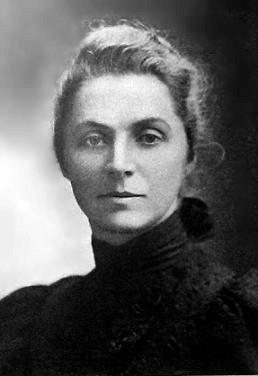
(a beautiful lady Emily)
I have just completed reading a book about Emily Hobhouse written by a Cape Town Journalist, Elsabe Brits. It has been a sobering and even a traumatic experience for me to read this book.
The creation of the book itself is a remarkable event. Emily died in 1926 and her writings were contained in a trunk. The author had managed to contact the granddaughter of Emily’s younger brother in a remote fishing village on a Canadian island in 2015. Elsabe found all the treasures of Emily's correspondence and even her “almost finished” autobiography.
It was indeed a treasured find.
A brief sketch of her life…
She was born in 1860 into Victorian aristocracy. The origins of the family fortune came from the traffic of slaves to America. I noted that her mother was a baronet and a wonderful woman who was devoted to her children and their education. Her father Reginald was the Archdeacon of Bodmin, an Anglican Rector in the parish of St Ive. It seemed she did not like her father too much as he was “humourless and conservative” and his health was not good, he was rather sickly. She found his sermons tedious and boring.
In those days, the boys got the finest education, attending Eton, having private tutors and university. The girls were educated at home in the “womanly skills” of sewing, singing, art, piano playing and learning the Romantic language of French through various governesses. She went to a finishing school, but all it taught her was horse riding and how to be a good wife. She resented this approach to life and she desperately wanted to acquire the skills of an occupation, just like her brothers.
A great tragedy in her life was when her mother passed away from a brain tumour when Emily was only twenty years old. As she was the youngest daughter, the task of looking after her father fell upon her. What a rotten fellow in my opinion, because he kept her there looking after him for the rest of his life. He refused to allow Emily to develop any further talents. Ironically he developed in Emily a great interest in politics because she had to read the Times newspaper to him on a daily basis. He died when she was thirty-four years old. His selfish needs overrode any opportunities for marriage prospects for his daughter. And he was a clergyman, what on earth did his religion mean to him? Yet I have personally known of several noble women who have sacrificed their lives in service for parents. Usually fathers are the culprits as mothers love their daughters enough to allow them to have personal lives. So this poor woman, taught how to be a wife and denied any further educational opportunities by her father, has her life warped away from the very training that she had gained as a young woman.
I am a great believer in families as that is where the development of society can occur. I further believe that parents exist for the development of their kids. I am so fortunate to have four beautiful girls. Paramount is the belief of my wife and I that an education is vital for them. I have seen too many times the abuse of women. I want education to protect them from being stuck in possible abusive relationships, where men can trap women as being totally dependent on their every whim. So many times in various programs and in the news do I see tragic events about this matter.
Ultimately my girls must choose their own destinies, regardless of how much heartache or joy their decisions may give their parents. I can only arm them for their future journeys, it is a road that only they can travel.
Anyway back to Emily.
So here is this poor woman, alone at 35 years in age. What did she want to do with her life? She knew two things, she wanted to see the world and she wanted to help people. We must remember that in those days, 1895, women were certainly regarded as second class citizens. Roman Dutch Law predominated the Western world, where the marital power of the man was established. In South Africa, only in 1984, did married women get the right to deal with property transactions!! To say nothing of the lack of rights of women in many middle eastern countries for instance. Do you remember recently in the world news how the Pakistani teenage girl, Malala Yousafzai, was shot in the head by the Taliban when she was travelling on a bus after writing an exam in northern Pakistan? Women were banned from being educated. Fortunately, this young girl survived and she is now an activist for women’s education. My blood boils when I see examples of such ignorant savagery.
So Emily went to America to help emigrant Cornish miners in Minnesota, America. She soon attracted the ire of the local clergy but she ignored their threats and complaints. She made a massive difference to so many peoples’ lives in so many practical ways. This was going to be a pattern for the rest of her life. She fell in love with John and hoped for children of her own. But he was a crook and financially broke, he ruined her financially and broke her heart. All her days she kept her bridal veil which she never wore.
She stayed at her beloved uncle and aunt, Lord and Lady Hobhouse for the next few years. They were childless and treated Emily like a daughter. When Emily read the local newspapers, she saw war clouds brewing. Britain was an empire and in far off South Africa there was trouble.
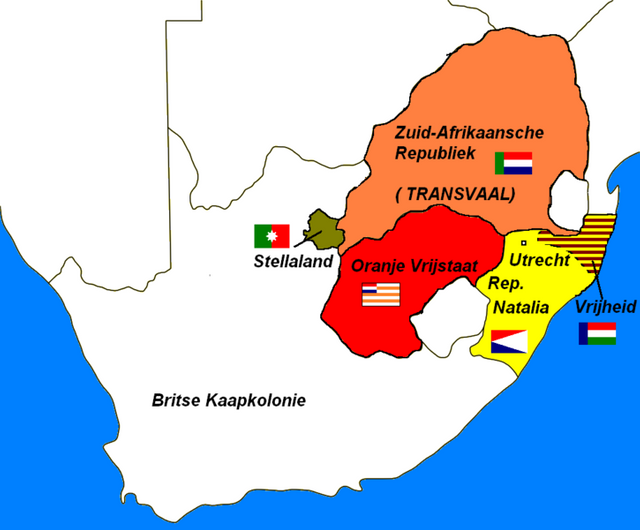
(the year 1885)
Cecil John Rhodes was the governor of the Cape Colony and he had imperial ambitions. Gold was in the Transvaal and he wanted those two Boer republics to be part of the British empire, of course he would end up being the primary beneficiary of the vast gold reserves, just as he had been from the diamond fields of Kimberley. Greed and patriotism are comfortable bedfellows. All the powerful use media to reach their nefarious goals by twisting public perception through cynical appeals to their feelings of patriotism. Emily’s family deplored war.
To me Britain is a curious contrary blend of humanitarianism, military prowess and imperial aggression. Yet their feelings of superiority arose from a strange combination of religion and Darwinism. As a people they were certain that the language of heaven is English. The zeal of their missionaries is legendary and they spread Christianity far and wide.
In 1899 the war commenced, there were quite a lot of liberals who opposed the war. However their voice was drowned out by newspapers and fiery speeches from religious podiums. There was the general feeling that all must support England regardless of right or wrong. Of course the viewpoint of the liberal in England was not just blind support but rather England’s conduct should honourable. Her anti-war approach alienated her from many friends and family, this was a great sorrow to her, but she was undeterred in her stance. Incredible courage wouldn't you say?
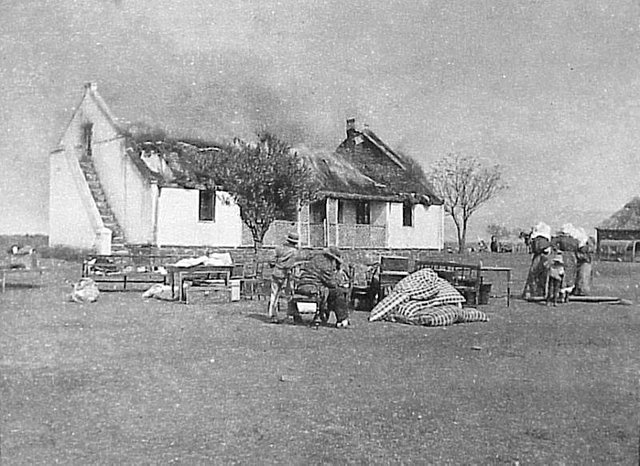
In South Africa, the war had turned ugly (if one can use such a term about war), the conventional war had been wrapped up pretty quickly by the British forces. The Boer forces refused to recognise the annexation of their republics by Britain and resolved to continue the conflict in guerilla warfare. Lord Roberts, commander in chief of British forces in South Africa, warned the Boer fighters of the stern consequences of destroying train lines or telegraph lines; neighbouring farms would be destroyed. The primary reason for the destruction of the farms, killing of all the farm animals and putting all the women and children into camps was to stop the Boer fighters from being fed by their families and to break their resolve. However this hardened the resolve of the Boer nation. The destruction of farms and even towns became wholesale. The liberals were appalled and deeply disturbed at this scorched earth policy. Some watered down reports had filtered into England.
It was against this backdrop that Emily formed the plan to go to South Africa, she was now about forty years old. While travelling on the ship, she taught herself the Afrikaans language and she was enchanted with its beauty. When she arrived, Kitchener had been promoted to Commander in Chief of British forces in South Africa and was continuing the scorched earth policy. Emily managed to obtain permission to visit the concentration camps but only as far north as Bloemfontein, she was not allowed to visit further north to areas in the Transvaal.
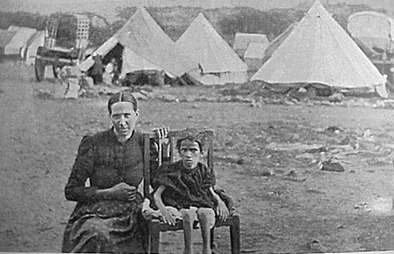
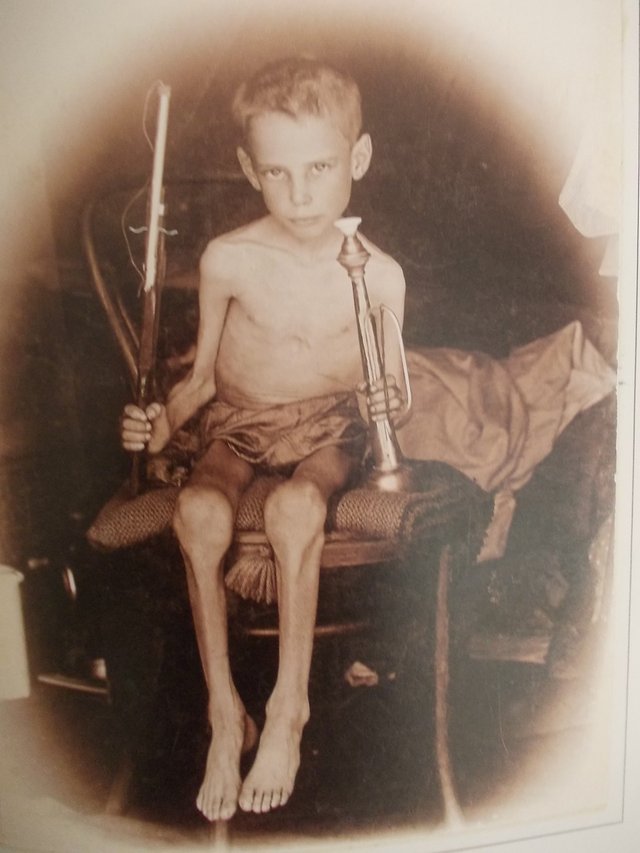
When she got to the camps, she found horrific conditions; starvation and many dying children. No clean water, very little food and no soap. No fuel to make fire. Too many people were jammed into tiny tents, everything was black with flies. Living and dead bodies occupied the same space until taken away for burial. She estimated there were about 30 deaths per day in each of the camps. The slop buckets were infrequently cleaned and the stench was overwhelming. Yet the opinion of many British was that the Boer people were dirty! She chastened and shamed the male officers into making some improvements. She regarded most of the men as ignorant, muddling, helpless and stupid. The Boer women were amazed at this English lady wanting to hear each of their tragic stories. They quickly grew to love her.
On a side note, yesterday, I was at a bookshop and I was chatting to an elderly woman. She told me that her mother remembered Emily from the concentration camp where she was interred as a child. Her mother said it was only because of Emily that she lived through the terrible times in the camps. Isn’t that amazing? I meet a woman whose mother actually met this great woman and was benefited to live and have her own family. all this while I am in the process of writing this very story.
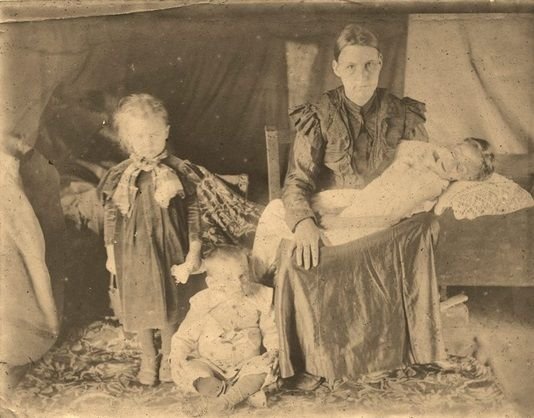
Emily’s plan was to tell the other side of the story, the story of the Boer women to British politicians back home in England. But lies were being spread about her by the military; that she was a “hysterical woman” who was unpatriotic and too sympathetic to the Boer. The cruelty and callousness of the military to the suffering of civilians wounded her patriotic soul. She was more of a patriot than those who were committing these terrible atrocities, in the name of the British Empire. She thought the army was quite useless and they wasted too much time on “picnicking, playing polo, shooting and playing golf”.
She also realised that thousands of black people were also herded into camps, she was unable to visit these victims and could only ask the authorities to improve their living conditions.
I think of my mother’s attitude how even though she has lived in this country all her life, that so much of these terrible events is just Afrikaner Nationalist propaganda and exaggeration. She frowned at all the books I am reading! She is a Jennings and proud of Mother England, a land where refinement and culture originate.
Close minded and refusal to find the truth? I am afraid so. But why? I look back in her history, she grew up in a country where Afrikaner nationalism was at its strongest, how laws were passed in the oppression and marginalisation of black people. Where black voices were silenced through cruelty and murder. Just as Imperial Britain regarded the lives of the Boer as cheap and worthless, the Afrikaner regarded the lives of black people in the same manner.
How tragic and how ironic, the oppressed became the oppressor. They did unto others what had been done to them.
Really great article my dear friend and thanks for sharing with us your great post
Downvoting a post can decrease pending rewards and make it less visible. Common reasons:
Submit
Terribly sad though, abandoned by so many friends.
Downvoting a post can decrease pending rewards and make it less visible. Common reasons:
Submit
That she got on a boat to a country she did not know (back in the day), shows the character of the person before she arrived.
Irony is the right word as to how we treat one another, no thought about trying to understand each other either, still happening to this day.
Enjoyed reading the abbreviated version, had read this book (or similar) many years ago.
My grandfather arrived with the British forces to fight against the Boers (Transvaal Region), met a wonderful Afrikaans woman who he married, went back to England only to return a couple of years later. Lived here for the rest of their lives on a farm near Meyerton where my Dad grew up.
Visiting from #teamsouthafrica
Downvoting a post can decrease pending rewards and make it less visible. Common reasons:
Submit
a wonderful story, thanks for sharing.
Downvoting a post can decrease pending rewards and make it less visible. Common reasons:
Submit
Your post has been selected to be entered into @teamsouthafrica's Daily Nominated Post section in Teamsouthafrica's Discord group. Congratulations!
#teamsouthafrica
Downvoting a post can decrease pending rewards and make it less visible. Common reasons:
Submit
yay
Downvoting a post can decrease pending rewards and make it less visible. Common reasons:
Submit
Great article about my one of the favorite woman...@fred703.. Emily Hobhouse has become an honorary South African through her selfless and courageous actions.... She was the great social worker...
Downvoting a post can decrease pending rewards and make it less visible. Common reasons:
Submit
interesting, do you know when it was done?
Downvoting a post can decrease pending rewards and make it less visible. Common reasons:
Submit
this is a good article,,I like this ..Emily Hobhouse is a awesome book,,the woman is so kind and fought for the peace,,Social activities is done !!!
Great work so,,
Thanks for sharing,,
"Peace should be the fundamental rights"

Downvoting a post can decrease pending rewards and make it less visible. Common reasons:
Submit
that's a awesome biography !!!
She is a beautiful lady!!
They are our pride!!!
As like as Mother Teresa!!!
Downvoting a post can decrease pending rewards and make it less visible. Common reasons:
Submit
I have also a passion of reading book.... Book is always gives us more knowledge about different source... Thanks @fred703 for sharing your thought about a book after reading..
Downvoting a post can decrease pending rewards and make it less visible. Common reasons:
Submit
The story about Emily life is so interesting and is a good lesson for the steemians. It is a good content blog. I really like it. War is totally disaster for humanity.Thanks for sharing.
Downvoting a post can decrease pending rewards and make it less visible. Common reasons:
Submit
thanks your informative post.
Downvoting a post can decrease pending rewards and make it less visible. Common reasons:
Submit
Very much I love your messages and this time I read with interest since for the first time I hear about Emily Hobhouse about this amazing woman, she rightfully can be called a person with a capital letter. Thanks for sharing.
Downvoting a post can decrease pending rewards and make it less visible. Common reasons:
Submit
Oh yes, my friend, the history of England's policy in South Africa is very tragic and good that there were women like Emily who opposed it! Thank you @fred703
Downvoting a post can decrease pending rewards and make it less visible. Common reasons:
Submit
The srory on life of Emily is a nice atricle. Humantity can not deserv the war. Emily Hobhouse has become an honorary South African. Thanks for sharing. Nice article.
Downvoting a post can decrease pending rewards and make it less visible. Common reasons:
Submit
@originalwork
Downvoting a post can decrease pending rewards and make it less visible. Common reasons:
Submit
The story about Emily life is so interesting and is a good lesson for the steemians. It is a good content blog. I really like it. War is totally disaster for humanity.Thanks for sharing.
Downvoting a post can decrease pending rewards and make it less visible. Common reasons:
Submit
its really interesting and great article about the emily life.. really great @fred703
Downvoting a post can decrease pending rewards and make it less visible. Common reasons:
Submit
i am fascinated to know about her glorious days. excellent days and event is surrounded to her life. thank you a lot for this good information
Downvoting a post can decrease pending rewards and make it less visible. Common reasons:
Submit
Emily Hobhouse was really a great woman as she spent her life for humanity. She is the role model for the young generation. Love and respect for the great lady. Thanks sir @fred703 for the great article about the great lady sharing with us.
Downvoting a post can decrease pending rewards and make it less visible. Common reasons:
Submit
she certainly was no sheep who had to follow public opinion. This defines a true leader.
Downvoting a post can decrease pending rewards and make it less visible. Common reasons:
Submit
Yeah sir she struggle a lot of .
I wanna also agree with you sir @fred703.
Thanks for sharing sir.
Downvoting a post can decrease pending rewards and make it less visible. Common reasons:
Submit